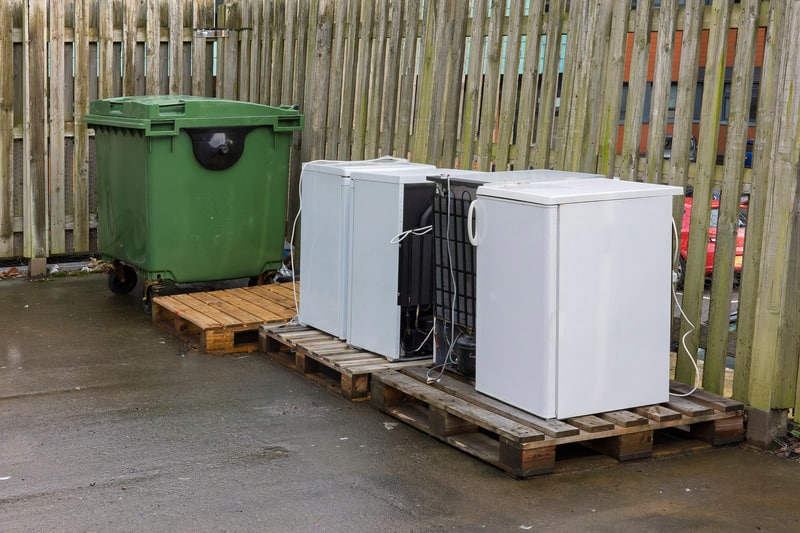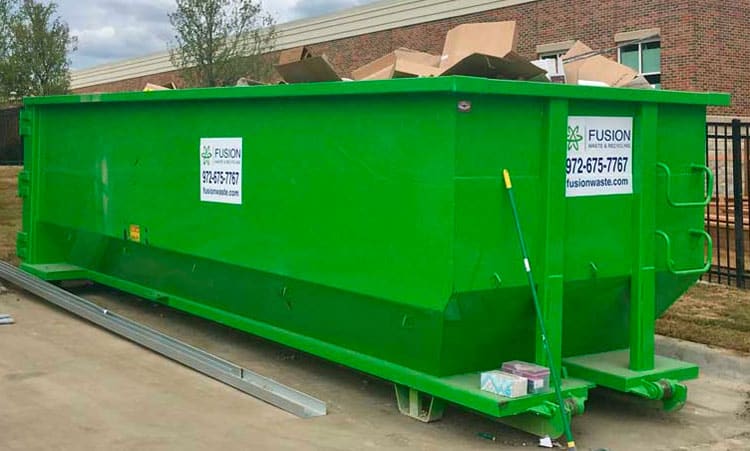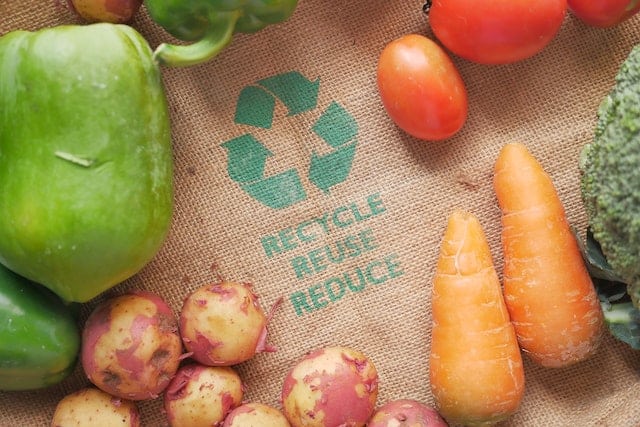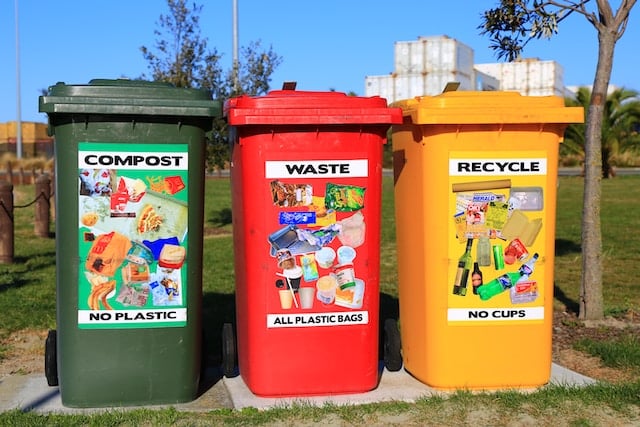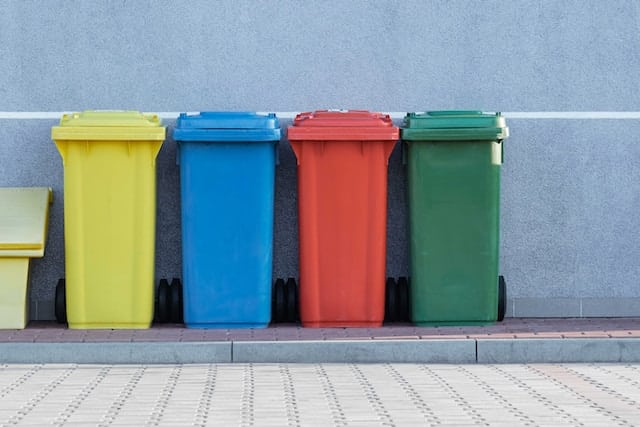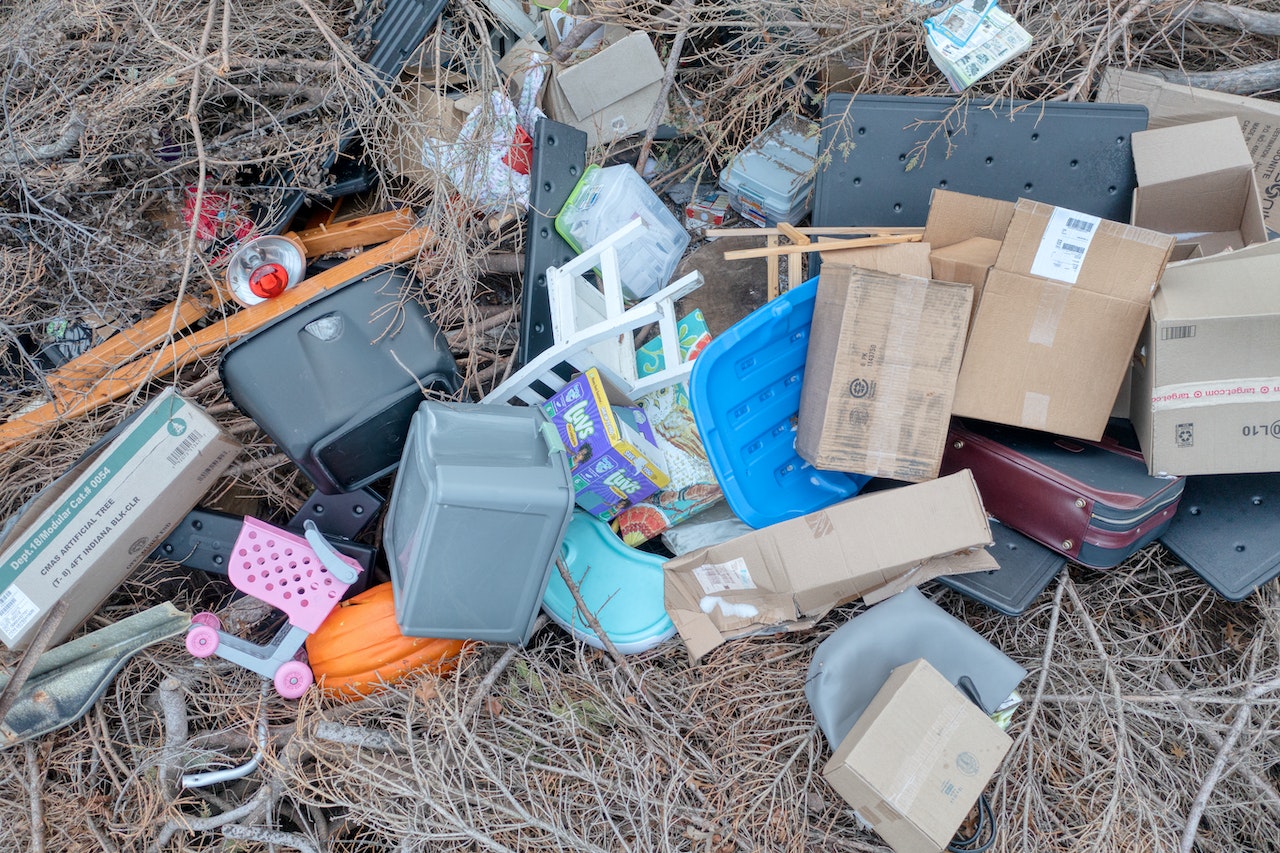
Electronics are the lifeline of our daily lives, from smartphones and tablets to refrigerators and televisions. They are essential for work, enjoyment, and communication. But, as with anything in life, these wonderful devices don’t last forever.
Have you wondered what happened to the old laptop or smartphone you tossed away last year?
Of course, it didn’t magically disappear, but did you know it could become a part of a growing “tech graveyard“? That’s right!
With rapidly evolving technology, we are left with approximately 50 million tons of e-waste yearly. As we discard our old electronic devices, they become part of a steadily growing pile of e-waste that clutters landfills, clogs storage facilities, and even leaks toxic substances into our environment.
Making a difference starts with understanding the importance of proper electronic waste disposal and recycling and recognizing our role in making it happen.
This blog will explore the world of electronic waste disposal, its impact on our environment, and how we can take the initiative to recycle our e-waste effectively.
Common Electronic Waste Items
Any electronic item that has reached the end of its useful life, whether due to obsolescence or damage, is considered “e-waste.” The most commonly found electronic waste items include:
- Televisions,
- Laptops,
- Cell phones,
- Printers,
- Radios,
- DVDs, and
- Cameras.
Despite their different shapes and sizes, e-waste items contain similar materials and components.
For instance, an average computer monitor contains components like lead, mercury, and cadmium that can get reused in manufacturing new electronic products.
However, some electronic waste items aren’t recyclable, such as:
- Light bulbs,
- Batteries, and
- Old appliances: refrigerators, microwaves, and air conditioners
These items require specialized handling and management due to their hazardous gases, chemicals, and associated components.
For instance, old refrigerators contain large amounts of CFCs that can threaten the environment if not disposed of properly.
How To Dispose Of Electronics?
Give back the electronics to the electronic companies or R2-certified e-waste recyclers and get drop-off points for cell phones and tablets. You can also sell or trade old or broken electronics and get trade-in or buyback schemes in return. Besides donating, you can also wait for the local municipality’s electronic collection day, which happens once a year.
You can throw away electronics by dropping them in your local household hazardous waste facility. Or schedule electronics recycling pickup services from R2-certified e-waste recycling companies. They will either donate or recycle your electronics.
Consequences Of Improper Electronics Disposal
- Environmental Contamination: When the e-waste gets disposed of in landfills or incinerators, it pollutes the soil, water, and air. The toxic substances from electronic waste can seep into the ground and groundwater, polluting rivers, lakes, and other bodies of water. This contamination can cause harm to aquatic and plant life and ultimately lead to soil degradation and compromised food sources.
- Increased Greenhouse Gases: When electronic waste gets incinerated, it releases greenhouse gases into the atmosphere, contributing to climate change. Electronic waste production, transport, and disposal also contribute to carbon emissions leading to global warming.
- Harm to Human Health: Exposure to chemicals in e-waste poses harmful health risks to human health. The chemicals present in electronics can cause respiratory problems, neurological damage, congenital disabilities, and other serious illnesses. Improper waste disposal can release these hazardous substances into the air and water systems, creating a dangerous environment for humans and animals.
- Drain on Resources: E-waste contains valuable resources such as copper, gold, and silver that could be recycled and reused. Improper disposal of e-waste leads to the depletion of these limited resources and hinders attempts at sustainable development.
Choose An Electronics Recycling Method
When it comes to responsible waste disposal and recycling, choosing the right method is crucial. Whether you need to dispose of solid waste, biohazard waste, or electronic waste, it’s important to find a trusted and certified waste disposal service that can collect and dispose of your waste efficiently and recycle it in an environmentally responsible way.
That’s why choosing a local recycling program specializing in e-waste recycling is essential.
What is the best way to research local recycling programs?
Researching a local recycling program is a time-consuming task. Some of the tips for researching local recycling programs are as follows:
- Use search engines:
You can use search engines like Google using keywords like “waste disposal and recycling services in [city/county name].” You’ll get a list of your city’s waste disposal and recycling companies.
- Check government websites:
You can also check local government websites to browse the information on waste disposal services available in those areas. You can also find various recycling programs on these websites and see what can or cannot be recycled.
- Look for non-profit organizations:
You can check for different non-profit organizations whose mission is to aim and promote waste reduction and recycling/sustainable practices. You can learn more about local recycling programs and alternative disposal methods like composting.
- Check with local businesses:
Local businesses like electronic stores may have recycling programs for their customers. Be sure to ask about their e-waste disposal options.
- Contact waste disposal services directly:
Some waste disposal companies offer e-waste recycling as part of their services. Contact these companies directly to find out their programs and if they provide pickup services.
Choosing a certified e-waste recycler is essential in ensuring your e-waste gets disposed of sustainably and responsibly. Certified recyclers undergo rigorous assessment, evaluation, and auditing measures to ensure they possess the best practices and adhere to environmental, regulatory, and social responsibilities.
Factors for selecting a certified e-waste recycler
Step 1: Ensure the recycler is reputable and experienced
A recycler that has been in operation for several years will likely have the knowledge and expertise to handle e-waste responsibly.
Step 2: Look for certifications
Try looking for certifications such as the Responsible Recycling Practices (R2) and e-Stewards, globally recognized certifications for e-waste recyclers. These certifications demonstrate that the recycler follows strict guidelines and best practices for e-waste collection, transportation, and recycling.
Step 3: Look at the recycler’s compliance with regulations
Ensure the recycler has safe and secure facilities compliant with relevant regulatory requirements. The e-waste recycler should have measures to ensure the safe handling of your e-waste to mitigate data breaches, protect brand reputation, and adhere to environmental health and safety requirements.
How To Prepare E-Waste For Recycling
Now that we know the waste disposal services ensure to handle electronic waste efficiently and responsibly. But before handing over e-waste, it is essential to prepare it for recycling.
Step 1: Backup and erase data on your device
This step is important to protect your privacy and any sensitive information you might have stored on your device. You can transfer your data to an external hard drive cloud storage or clean your device using specialized software.
Step 2: Remove batteries from electronic devices
It would help never to throw batteries in a regular bin, as they are considered hazardous waste. If thrown away, they can cause harm to the environment and wildlife. So, it’s vital to dispose of them properly by taking them to special battery recycling locations.
Step 3: Transport E-waste
Once you have backed up your data and removed the batteries, the next step is to transport your e-waste. This part is where things get tricky. In most cases, you can’t dispose of e-waste in regular trash cans. Depending on the type of waste, you might have to follow different procedures to dispose of it.
For example, biohazard and hazardous waste disposal require special handling and packaging. You must ensure your waste is properly labeled and transported in compliance with federal laws and regulations. Giving special instructions is crucial if your e-waste is considered hazardous. Doing so can help ensure the safety of those handling your waste and the environment.
Step 4: Look for drop-off locations or schedule a pickup from a certified recycling facility
Recycling your electronic devices is vital to reducing waste and conserving natural resources. Recycling can recover metals such as gold, copper, aluminum, and more.
Benefits Of E-Waste Recycling
E-waste recycling can provide the following benefits:
Environmental Benefits:
Recycling electronic waste benefits the environment in the following ways–
- Minimizing Landfills: Proper disposal of e-waste minimizes landfills and reduces soil and air pollution.
- Conservation of Natural Resources: Recycling e-waste reduces the need for new materials, which helps conserve natural resources.
- Reduced Carbon Footprint: Recycling e-waste generates fewer carbon emissions (including greenhouse gases) than new production processes.
Economic Benefits:
Recycling electronic waste benefits the economy in the following ways–
- Job Creation: Properly recycling e-waste can create employment opportunities in the waste disposal services industry.
- Cost Savings on Raw Materials: Recycling e-waste makes production cheaper as recycled materials are less expensive than new ones.
- Gift of Resale: When recycled, e-waste can be refurbished or repaired and resold to someone else.
- Reduced Import and Export of Waste: Recycling e-waste can lessen the need for importing electronic components and finished products, decreasing shipping costs and other import-related expenses.
Health Benefits:
Recycling electronic waste benefits our health in the following ways–
- Avoidance of Biohazard Contamination: Recycling electronic waste helps avoid contamination from toxic substances, which causes diseases in individuals and communities.
- Reduced Exposure to Toxins: Recycling e-waste also helps reduce exposure to toxins from different landfills and disposal sites.
Why Recycling Electronic Waste Is Critical For A Sustainable Future
E-waste remains critical to the environment, so looking for different safe and efficient waste disposal services is important. Conserving natural resources, protecting public health, and reducing greenhouse gas emissions are all benefits of recycling e-waste responsibly.
Hence, we must recycle our electronic waste responsibly with the help of certified waste disposal companies. Additionally, we can donate or reuse our electronic devices. So, we must take action today to create a lasting difference for tomorrow. Let’s recycle our e-waste and preserve our planet.
Find a certified waste disposal and recycling company near you and reclaim your e-waste today!
Frequently Asked Questions (FAQs)
Garbage disposal waste typically goes to a landfill or a waste-to-energy facility.
Plastic takes the longest to decompose. It takes about 450 to 1000 years for plastic to decompose.
Improper waste disposal causes air, water, and soil pollution. When these wastes get burnt, they release harmful chemicals into the air, affecting air quality and causing different respiratory issues. The landfills where we dump the waste also cause soil and waste pollution, whose toxicity harms wildlife and the ecosystem. In the bigger picture, waste disposal also increases greenhouse gas emissions. This emission causes climate change and global warming.
Individuals can reduce waste production by practicing the 3 Rs (reduce, reuse, and recycle) and properly dispose of waste in designated areas to prevent it. Governments should also enforce waste management regulations and provide education on responsible waste disposal.

